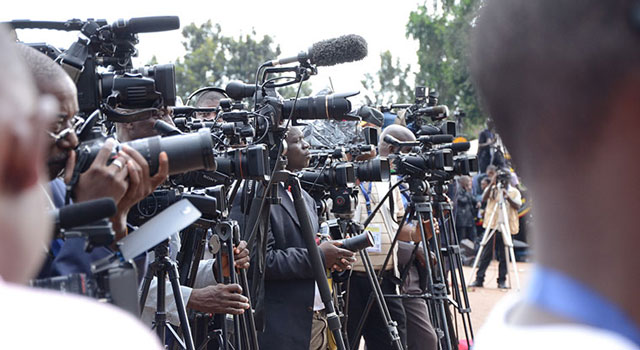
A declaration calling for the strengthening of the media landscape comes at a pivotal time as African nations – both societies and governments – push for media reforms to tackle ongoing threats concerning journalistic integrity and safety.
SPECIAL REPORT | BIRD AGENCY | South Africa’s Rhodes University recently unveiled the Makhanda Declaration, a new commitment to strengthen journalism as a public good in South Africa and beyond.
According to a LinkedIn post from the university, the declaration, launched on October 18, has 11 goals, calling on media professionals to defend press freedom, secure journalist safety, and build financially resilient newsrooms.
“The event, aligning with SA Media Freedom Day and the historical commemoration of Black Wednesday, marks a renewed commitment to uphold journalism’s role in society,” the post explains.
The declaration stems from an April 2024 summit themed Seeds of Change: Cultivating the Future of Journalism in Africa, which dedicated three days to industry leaders to rethink and strategize the role and place of journalism in democratic development.
At the launch, prominent figures such as Cheri-Ann James, Heather Robertson, Zikhona Tshona, and Jurie Blignaut delved into the Declaration’s principles, offering insights into the current challenges and dynamics within today’s newsrooms.
“We reaffirm that the dissemination of news must recognize partnerships and collaboration and affirm the need to work together to sustain journalism and its future in an ever-evolving society,” the declaration reads in part.
The 11 thematic areas in the declaration include Journalism as a public good, digital governance, algorithmic transparency, sustainability of journalism, taxation, multilingualism, community media, public broadcasting, regulation, attacks and killings of journalists, media literacy, education and research, and student media.
The declaration, inspired by the 1991 Windhoek Declaration, was jointly prepared by the School of Journalism and Media Studies at Rhodes University and the South African National Editors’ Forum (Sanef).
According to UNESCO, the 1991 Windhoek Declaration is “considered a benchmark for ensuring press freedom around the world.”
In a statement, the Press Council of South Africa explained that the proclamation aims to revitalize journalism. The unveiling aligned with Media Freedom Day on October 19, which commemorates Black Wednesday, when the apartheid regime banned major newspapers and jailed anti-apartheid journalists in 1977.
The Makhanda Declaration comes at a time when African nations are increasingly recognizing journalism as a vital public good. This is exemplified by the growing efforts to reinforce press freedom and protect journalist integrity across the continent.
Notably, while Freedom of Information legislation began being implemented in Africa in the 2000s, more than half of the continent has adopted these laws, promoting access to information in public affairs and governance. This progress has reduced secrecy in governmental processes and expanded journalists’ ability to collect records and data.
As of February, 29 out of 55 African countries have enacted freedom of information (FOI) laws, according to the Africa Freedom of Information Centre. This is in addition to country-level efforts to reform the sector to better serve public good.
Somalia, for instance, has advanced various media reforms this year, including the appointment of the country’s first media council, the Somalia National Media Council.
The council’s formation directly results from the media law, which mandates the transition from government-controlled media to public broadcasting.
Senegal is also on the verge of undertaking ambitious reforms to its media sector, including plans to create a new media regulatory body to replace the ‘Conseil National de Régulation de l’Audiovisuel’ (National Audiovisual Regulatory Council, CNRA), which has been in place for 18 years.
In an interview with the African Journalism Education Network, Rhodes university lecturer, Taryn de Vega, highlighted ongoing challenges in the industry.
She noted that despite progress, several factors are threatening journalism today. These include the rise of artificial intelligence (AI) and monopolistic corporations dominating the media landscape.
There is also a growing decline in belief in media independence. Additionally, digital attacks on journalists, harassment, and even killings of truth-tellers pose serious risks. Finally, issues like journalistic corruption and checkbook journalism signal the commodification of news, further endangering the industry.
“We call on civil society, educators, big tech companies, the government and society at large to recognise that journalism will always be relevant, the truth will never be obsolete, and that journalism remains paramount…” the declaration explains.
****
Bonface Orucho, bird story agency
 The Independent Uganda: You get the Truth we Pay the Price
The Independent Uganda: You get the Truth we Pay the Price



